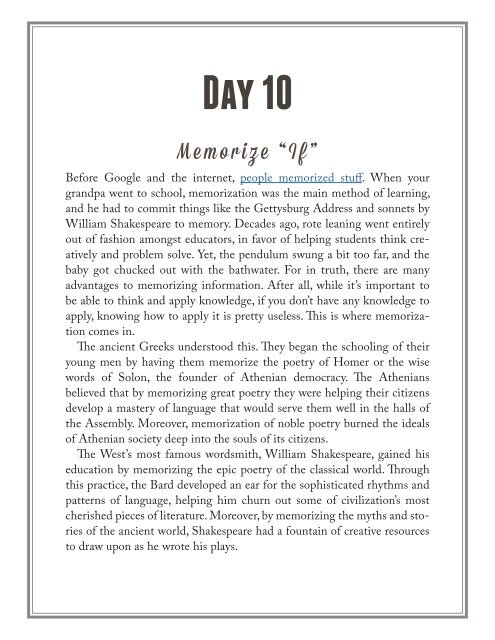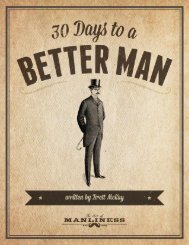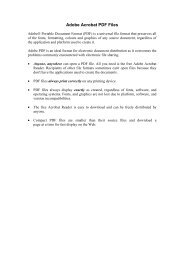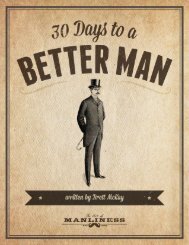588b1c58c8a68278cfc28555
Create successful ePaper yourself
Turn your PDF publications into a flip-book with our unique Google optimized e-Paper software.
Day 10<br />
Memorize “If”<br />
Before Google and the internet, people memorized stuff. When your<br />
grandpa went to school, memorization was the main method of learning,<br />
and he had to commit things like the Gettysburg Address and sonnets by<br />
William Shakespeare to memory. Decades ago, rote leaning went entirely<br />
out of fashion amongst educators, in favor of helping students think creatively<br />
and problem solve. Yet, the pendulum swung a bit too far, and the<br />
baby got chucked out with the bathwater. For in truth, there are many<br />
advantages to memorizing information. After all, while it’s important to<br />
be able to think and apply knowledge, if you don’t have any knowledge to<br />
apply, knowing how to apply it is pretty useless. This is where memorization<br />
comes in.<br />
The ancient Greeks understood this. They began the schooling of their<br />
young men by having them memorize the poetry of Homer or the wise<br />
words of Solon, the founder of Athenian democracy. The Athenians<br />
believed that by memorizing great poetry they were helping their citizens<br />
develop a mastery of language that would serve them well in the halls of<br />
the Assembly. Moreover, memorization of noble poetry burned the ideals<br />
of Athenian society deep into the souls of its citizens.<br />
The West’s most famous wordsmith, William Shakespeare, gained his<br />
education by memorizing the epic poetry of the classical world. Through<br />
this practice, the Bard developed an ear for the sophisticated rhythms and<br />
patterns of language, helping him churn out some of civilization’s most<br />
cherished pieces of literature. Moreover, by memorizing the myths and stories<br />
of the ancient world, Shakespeare had a fountain of creative resources<br />
to draw upon as he wrote his plays.


















